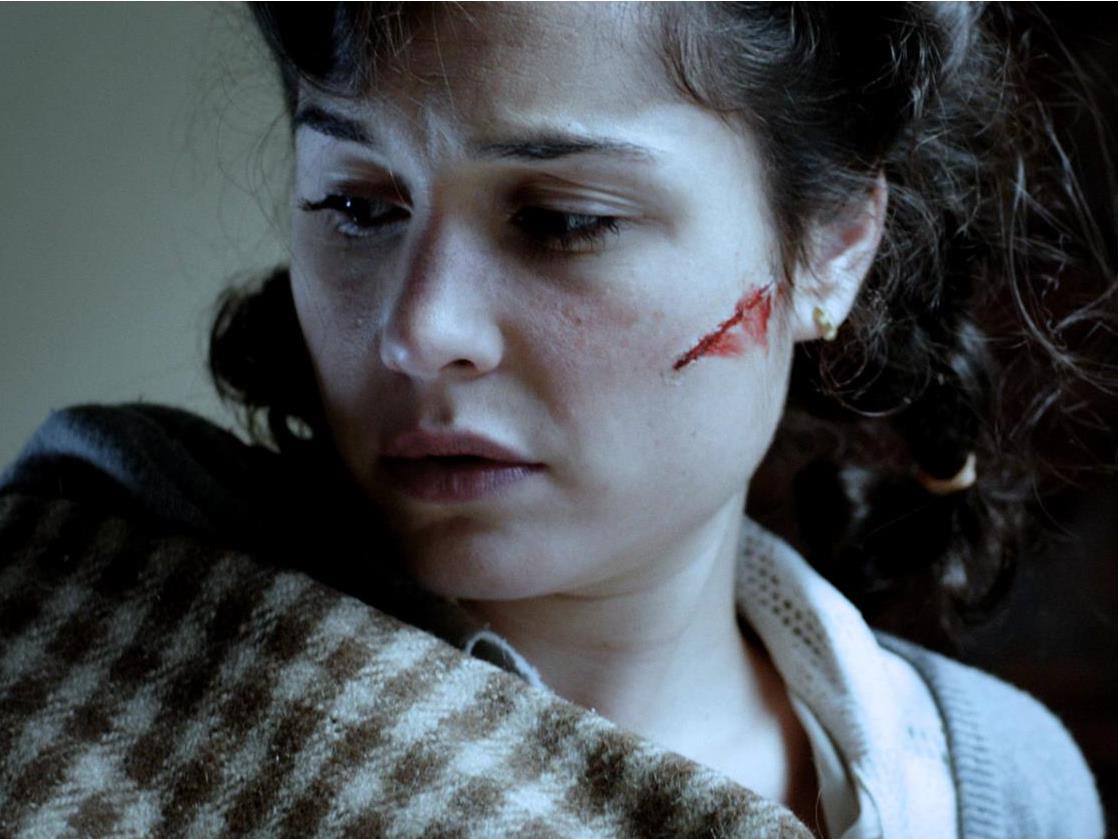The presence of those who have come before haunts Shrew’s Nest (Musarañas). In the horror film’s slow-building storyline, the ghostly authority of a father (Luis Tosar, A Gun in Each Hand) lingers over his eldest daughter, Montse (Macarena Gómez, Witching & Bitching), even years after his disappearance. Trapped inside the only home she has ever inhabited, and a slave to morphine to help assuage her agoraphobic panic, she relives his childhood taunts and imagines the continuation of his scathing opinions. Only her 18-year-old younger sister (Nadia de Santiago, Spanish TV’s To Love is Forever) offers Montse a reprieve from her demons, though her role as caretaker once more stems from their father’s sway over her decisions.
In telling Montse’s tale in post-civil war Spain, that of a tortured woman pushed beyond the realm of her ever-tenuous comfort zone and into a sinister struggle for survival, first-time feature directors Juanfer Andrés and Esteban Roel also share her acquiescence to the influences of the past. As their narrative explores the consequences of her troubled upbringing, initially manifesting in her controlling and sometimes-cruel treatment of the sibling she fears will now move out and desert her, it plunges into territory traversed by many a psychological thriller from years gone by. Nowhere is this more apparent than in the neighbour, Carlos (Hugo Silva, I’m So Excited!), who falls into her orbit. After a tumble down the stairs lands him at her front door, and his own misdeeds see him happy to stay, a kindly gesture of assistance becomes one of a captor preying upon a victim.
Clearly beholden to Misery, the Stephen King novel turned 1990 film, and just as clearly cultivating the same melancholy and gloom as its pervading mood, Shrew’s Nest scampers through a claustrophobic microcosm of cat-and-mouse game-playing. Just as the stimulus that sparks Montse’s actions is always apparent, as is the feature co-writing filmmaker Andrés and his fellow scribe Sofía Cuenca (Los Quién) covet in their fleshing out an idea by Emma Tusell (Madrid crea), so too is the path the plot follows, over-the-top twists and melodramatic revelations included; however the obviousness of many of the movie’s elements doesn’t preclude it from having a modest impact.
Indeed, Andrés and Roel may not prove masters of originality, but they do show their skills in exploring confining spaces and scenarios. Courtesy of cinematographer Ángel Amorós (Maravilla), the camera creeps around its apartment setting with the requisite air of unease, a sensation heightened by the favouring of foreboding shadows flitting across the characters’ faces, and the splatters of blood that start to fester on floors and surfaces. Such inching, shading and pooling ramps up the atmospheric tension, while also visually alluding to the interplay between oppression, repression and secrecy crucial in the narrative. It might not be a subtle touch, nor is the religious iconography that further reinforces the historical significance of the feature’s 1950s timeframe, but it is effective.
The film’s technical merits aside, elsewhere its achievements sit on the shoulders of its small, stellar cast. Though both Tosar and Silva are only ever asked to play the aggressor of and pawn within the situation, their performances guarantee that their supporting roles are livelier on screen than they likely read in the script. Of course, it is Gómez and de Santiago who hold the audience in their thrall, monopolising the feature’s focus and offering its most enduring influence. Where the former expertly shifts from a restrained figure eliciting sympathy to an unhinged one inducing horror, ensuring Montse’s complicated motivations remain plausible if never relatable, the latter shines with resilience, defiance and burgeoning empathy. They may never shake the presence of other forces within their midst, nor does Shrew’s Nest as a whole, but they do leave a firm imprint.
Rating: 3 stars out of 5
Shrew’s Nest (Musarañas)
Directors: Juanfer Andrés and Esteban RoelSpain / France, 2014, 95 mins
Spanish Film Festival
http://www.spanishfilmfestival.com/
Sydney: 21 April – 10 May
Melbourne: 22 April – 10 May
Canberra: 23 April – 6 May
Perth: 23 April – 6 May
Brisbane: 29 April – 13 May
Byron Bay: 30 April – 7 May
Adelaide: 6 – 20 May
Hobart: 7 – 13 May
Actors:
Director:
Format:
Country:
Release:





